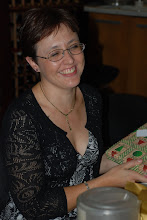Ramadan Kareem!
15 October 2004 marked the start of Ramadan – a month of special significance to those of the Islamic faith. Living in an Islamic country gave me the opportunity to experience it first hand.
I have been looking forward to experiencing Ramadan ever since I arrived in the UAE. Mostly because I had heard so many different things about it: “Everything shuts down” “There is nothing to do.” “You’ve got to be extra conservative.” “There are wild parties at night.” “You’ve got to stay indoors.”
Some of this proved to be true. And some not so true.
Ramadan is the ninth month of the Islamic calendar, and is of special significance for Moslems because they believe this was the month when the angel Gabriel gave the Prophet Mohammed the Qu’ran.
During this month, Moslems are expected to fast from sunrise to sunset, and to abstain from smoking, sex and anything considered “haraam” (impure). It is a time of repentance, prayer, and spirituality. The Qu’ran is read through at least once, and additional prayers are said at night. There is also an increased focus on family, hospitality and charity.
Before sunrise, a light meal is eaten prior to beginning the fast. The fast is broken when the sun sets with a meal known as “Iftar.”
The Ramadan fast is broken with Eid al-Fitr (literally “the festival of the breaking of the fast”) when people dress in their best clothes, share gifts, and decorate their homes with lights.
All Moslems, except for children, pregnant or breastfeeding mothers, women who are menstruating, the elderly and the ill, have to partake in the fast. Those who are forced to miss the fast due to the reasons listed are expected to make up the missed days – either by fasting at a later date, or by providing food to a poor person.
In an Islamic country, Ramadan has a big impact on daily life, but it has not been nearly as bad as I had been led to believe. I was under the impression that all the shops would be shut, but fortunately I was wrong!
The restaurants, take-away places, cafes and small grocery shops are closed until 5pm, but most other retail outlets are open. Shopping hours do change though, and instead of being open until 10 or 11pm, the shops close between 1 and 2am.
During the day things are much quieter. Most government institutions open an hour later than normal, and most businesses close at 2pm.
People will often spend this time at rest, with family or in prayer.
There are collection points at mosques, shopping centres and schools where Moslems can drop off their charitable donations. Feeding stations for the poor are also set up.
The fast is traditionally broken with dates, which are of special significance in the Moslem world as this is what Mohammed ate, and it is mentioned in the Qu’ran. Did you know that Allah instructed Mary to eat dates while she was pregnant with Jesus?
Just before the sunset prayers, you see everyone walking towards a mosque, often carrying containers of dates and plates of food, and these are shared communally at Iftar after prayers have been completed.
Hotels and restaurants offer Iftar buffet meals, and offer traditional food, music by oud players and things like backgammon and chess tournaments. I have not yet been able to go to one of these Iftar tents, but I plan to! I can’t wait to taste the delicacies on offer.
I had heard stories about wild parties along the Corniche (Abu Dhabi waterfront) and my family and I decided to experience it for ourselves last night.
Our walk proved to be a far cry from what we had heard. There were definitely more people than usual, but no wild parties. Just eating and a relaxed atmosphere. Kids were playing like kids should. On roller skates, on bikes, even a game of cricket was going on. Nothing noisy, just like a casual family picnic. Except it was at night!
I had also been warned that I should dress more conservatively and ensure that I did not eat, drink, smoke or chew gum in public. I was happy to comply, but was a bit concerned at how conservative I should dress. So I went out and bought a shawl, and wrapped it around my shoulders on the first day of Ramadan. It proved unnecessary. As long as you aren’t wearing a mini skirt, shorts, strappy or midriff tops, it is quite fine. I’ve pretty much worn my normal clothing except for the strappy sundresses.
While commercialism of Ramadan has happened to a degree, it is no where nearly commercialised as Christmas and Easter are in the Western world. You can get Ramadan greeting cards, shops are festooned with the words “Ramadan Kareem” (Ramadan is generous) and there are lots of “special offers” mostly focused on the breaking of the fast and the idea of hospitality. This could range from a special offer on pots and pans at the supermarket, to the KFC’s 20 dirham eat-as-much-as-you like Iftar special, or the Dubai branch of Nando’s offering to donate 10% of the value of your meal to the charity of your choice!
Ramadan has been an interesting learning experience so far, and has given me plenty to think about. What do you think?
Subscribe to:
Post Comments (Atom)

No comments:
Post a Comment